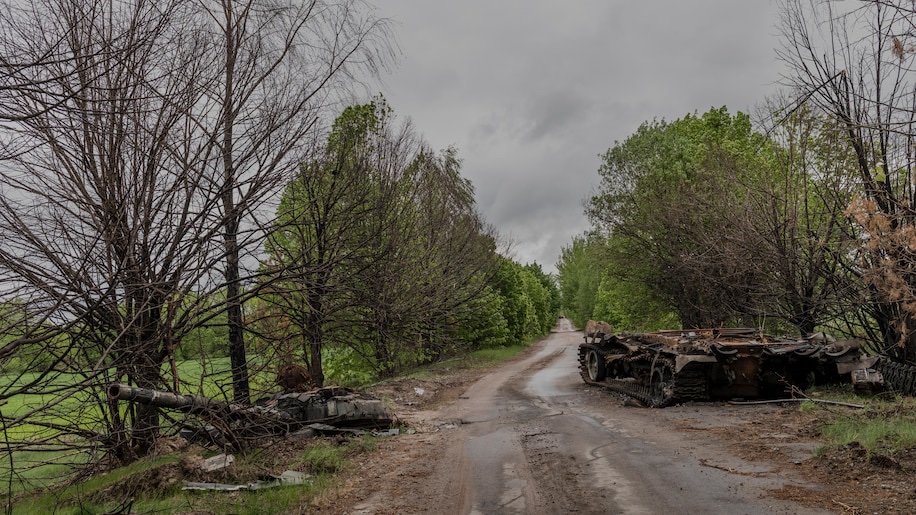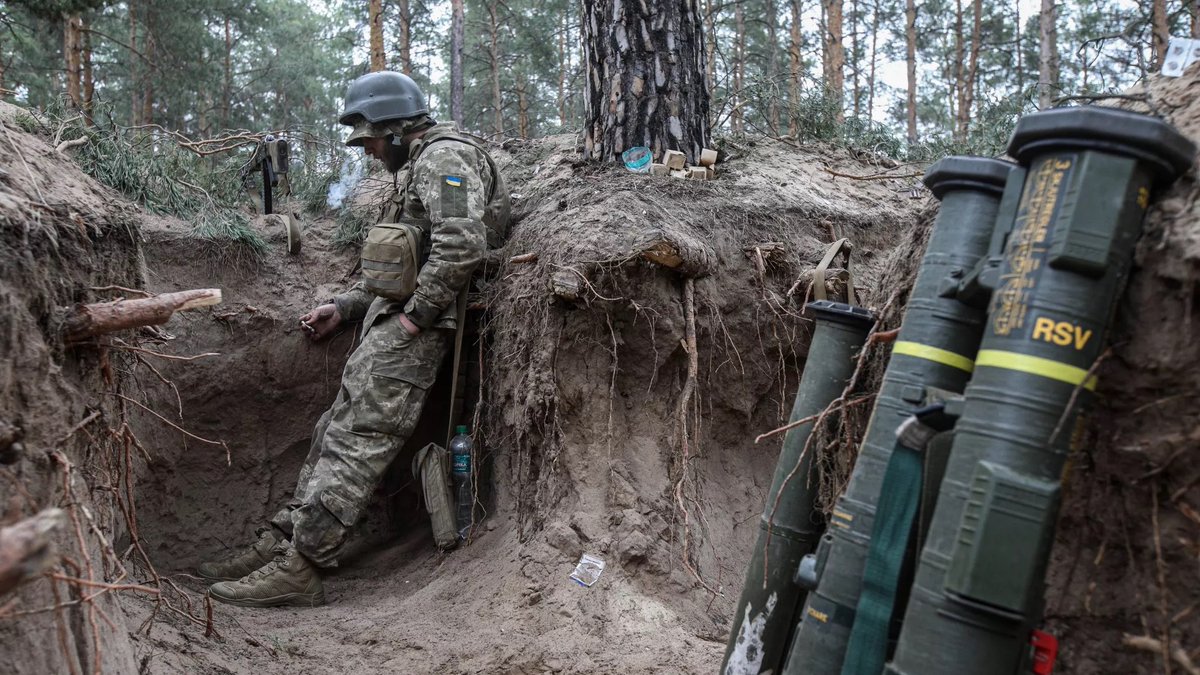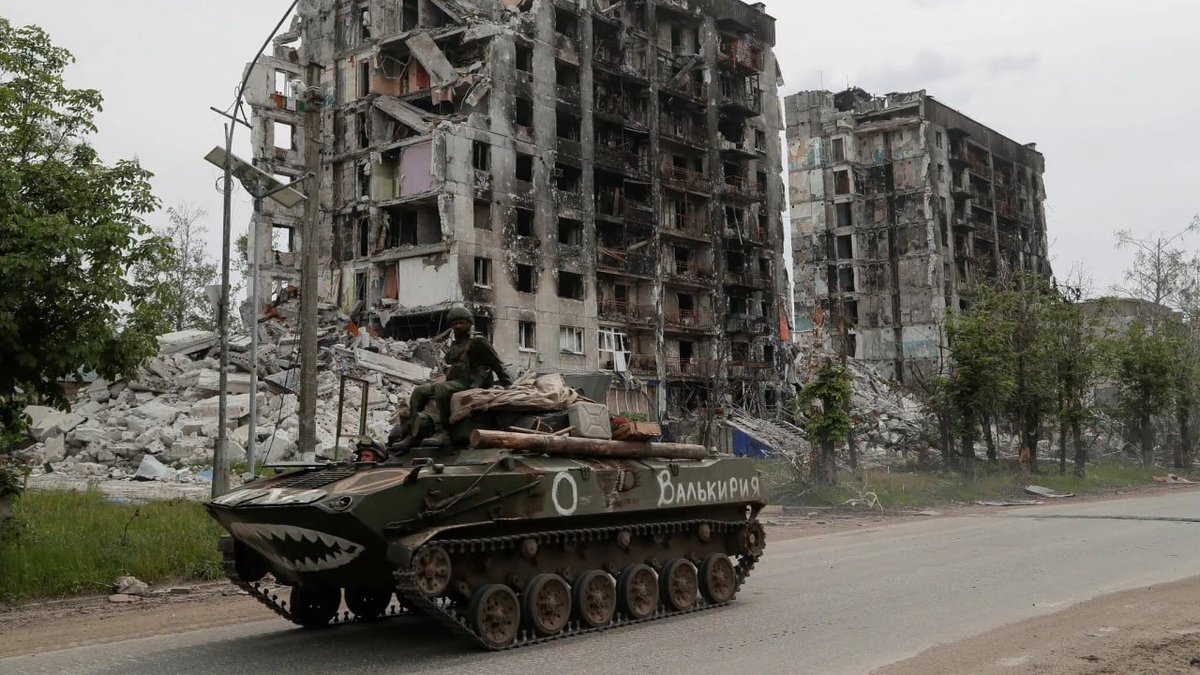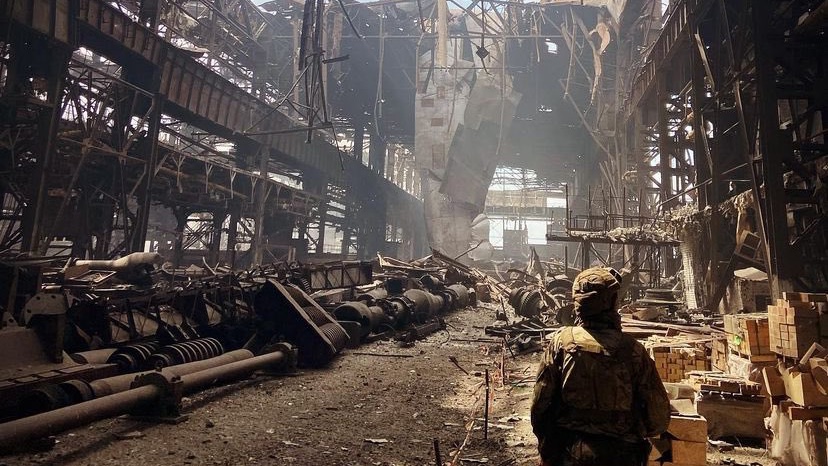
We have passed the 100-day mark since the Russian invasion of #Ukraine. Today, a review of the key strategic lessons so far. This isn’t a full list, just seven key observations. There will be many more as we continue to watch & learn from this war. 1/25 (Pic: @IAPonomarenko) 

2/ In 100 days, Russian advances on Kyiv & Kharkiv have been thrown back by courageous battlefield tactics & strategic leadership from the Ukrainians. At the same time, the invading Russians have secured large parts of southern and eastern Ukraine. (Pic: @War_Mapper) 

3/ From the Ukrainians, we have seen national unity, resilience, national mobilisation, good strategy, excellent global influence activities and superb leadership from their President.
4/ It has also been an opportunity for many to learn. For national governments, there is a significant lesson about investing in defence capabilities as both a deterrent against aggression & ensuring appropriate responses if aggression can’t be deterred.
5/ For military institutions, there are learning opportunities at all levels. Many lessons are not new. But there are some new lessons – such as the importance of counter-autonomy operations, and better integration of battlefield and global influence activities.
6/ The aim of this thread is not to review tactical lessons. It is however to record some of my higher-level observations which should be of use to governments, policy makers and senior military leaders.
7/ First, Strategy matters. As the Russians have rediscovered in Ukraine, getting strategy (and its underpinning assumptions) right is critical to effective military operations. Effective strategic thinking is more important than tactical excellence.
8/ Russian assumptions about a rapid Ukrainian collapse underpinned their initial military strategy. Putin’s desired political end state – a compliant Ukraine - relied on a decisive and quick military victory. The Ukrainians missed this memo.
9/ For this reason, strategic effectiveness – getting the political outcomes and supporting strategy right - is of profound importance to twenty-first-century nations and their military institutions. Russia’s Ukraine debacle is a case study of how not do 21st century strategy.
10/ Second, uncertainty remains central to conflict. The last 100 days have also shown (again) that ambiguity & uncertainty are central to warfare, regardless of how many tweets and TV reports we see.
11/ The old phrase ‘fog of war’ has new meaning when we can access all the information we desire & still be none the wiser about what is occurring. Successful 21st century nations will prepare their leaders and institutions to thrive in this environment, and not assume it away.
12/ Third, greater integration in war is vital. Violence and influence are two important aspects of war. The Ukrainians have been superb at integrating these two aspects of war. And this is important in every domain and all levels of war.
13/ There has never a time when western forces had to fight on the land, in the air, at sea & in cyber and information domains all at once. However, that is the challenge of modern warfare moving forward. It will require rebalancing investment in different military capabilities.
14/ Fourth, the need to win the Adaptation Battle. It is impossible to anticipate every eventuality in war. As such, a key virtue for military and other national security organizations is design themselves in peace so they can adapt quickly in war.
15/ Both sides in this war have demonstrated a capacity to learn, although the Ukrainians have probably stood out more in this regard. They have identified and attacked Russian weaknesses and implemented an adaptive military strategy. The Russians have learned, but slowly.
16/ This is very difficult. The incentives in war are different to those in peace time. But governments and military institutions must be able to recognise change and then quickly make changes to their orgs and ops to generate continuing advantage in war and competition.
17/ Fifth, war is a national undertaking. As Ukraine has demonstrated, success in war (or just holding on) requires a commitment of all national resources. War is not a military undertaking but one that demands the commitment of every citizen and resource available.
18/ As the Russians have found, fighting large scale wars with a peace time military force is difficult. Not only does it limit resources available, it means the full force of national power is not brought to bear. For the west, if fighting in the future, bring the country along.
19/ Sixth, patience. Wars that begin in the expectation that they will be over quickly, cleanly and gloriously almost never do. There are multiple examples from the 20th century. This war is yet another.
20/ The desire for short wars, with commitment of limited forces, almost always results in them being longer & more expensive because the enemy always gets a vote. For belligerents & their supporters, strategic patience is required for fighting, supporting & prevailing in wars.
21/ Finally, wars are human, not technological, activities. The decisions to go to war are made by humans (primarily politicians), and in doing so they demonstrate a range of emotions including hubris, intelligence, stupidity, arrogance, aggression and cowardice.
22/ This war has, again, shown the centrality of good leadership. The most important leader has been President Zelensky. He has carried the weight of Ukraine on his shoulders & reignited in us all the understanding that freedom must be defended.
23/ More broadly, the quality of human thinking and action has been telling in this war. Training and education shortfalls have been evident, as have been brutality and stupidity. There is much that can be learned about developing a professional fighting force from this war.
24/ While there is a big focus on technology in war, there are no tech silver bullets in conflict. No machine can inspire a nation or assemble an international coalition. No #AI can hold a soldier’s hand to comfort them while dying on the battlefield. (Pic: @washingtonpost) 
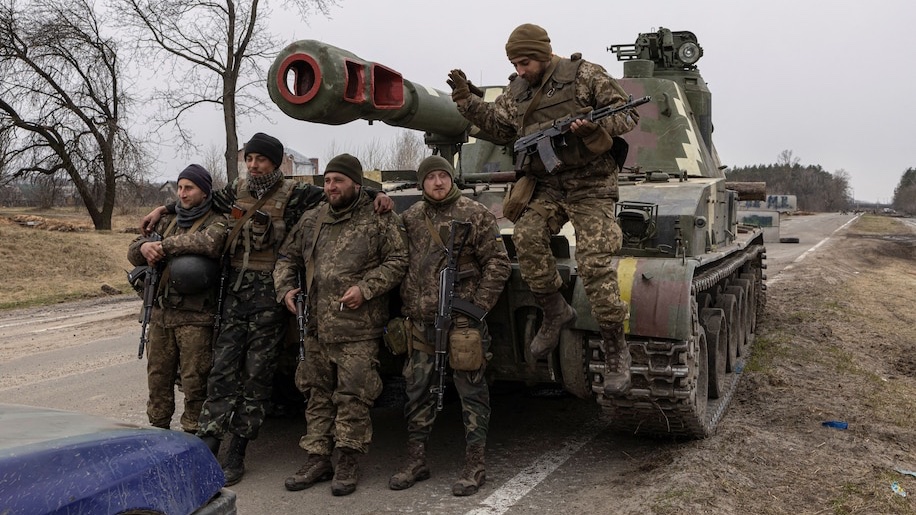
25/ After 100 days of fighting, neither side is capable of landing a knockout blow against their opponent. Indeed, such an idea is flawed in most wars. Both combatants are weary – but both also have the will and means to continue fighting for some time to come. End. (Pic: @CNN) 
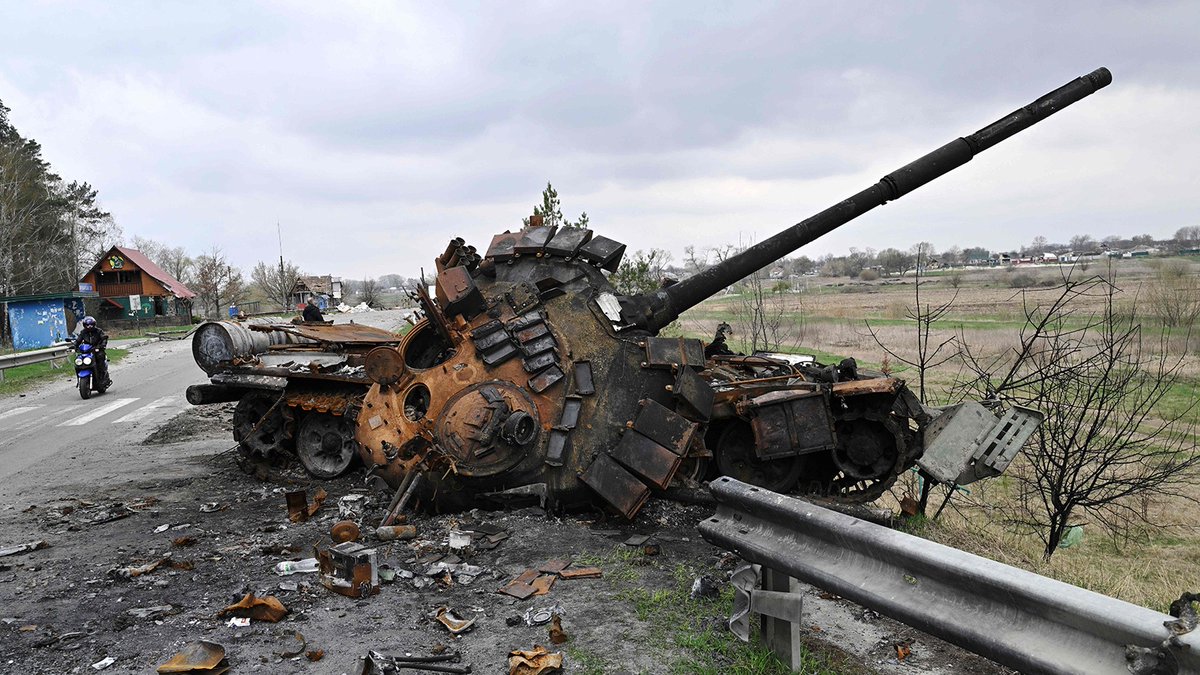
• • •
Missing some Tweet in this thread? You can try to
force a refresh


